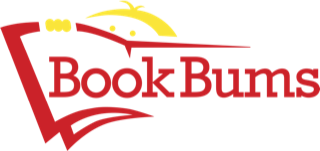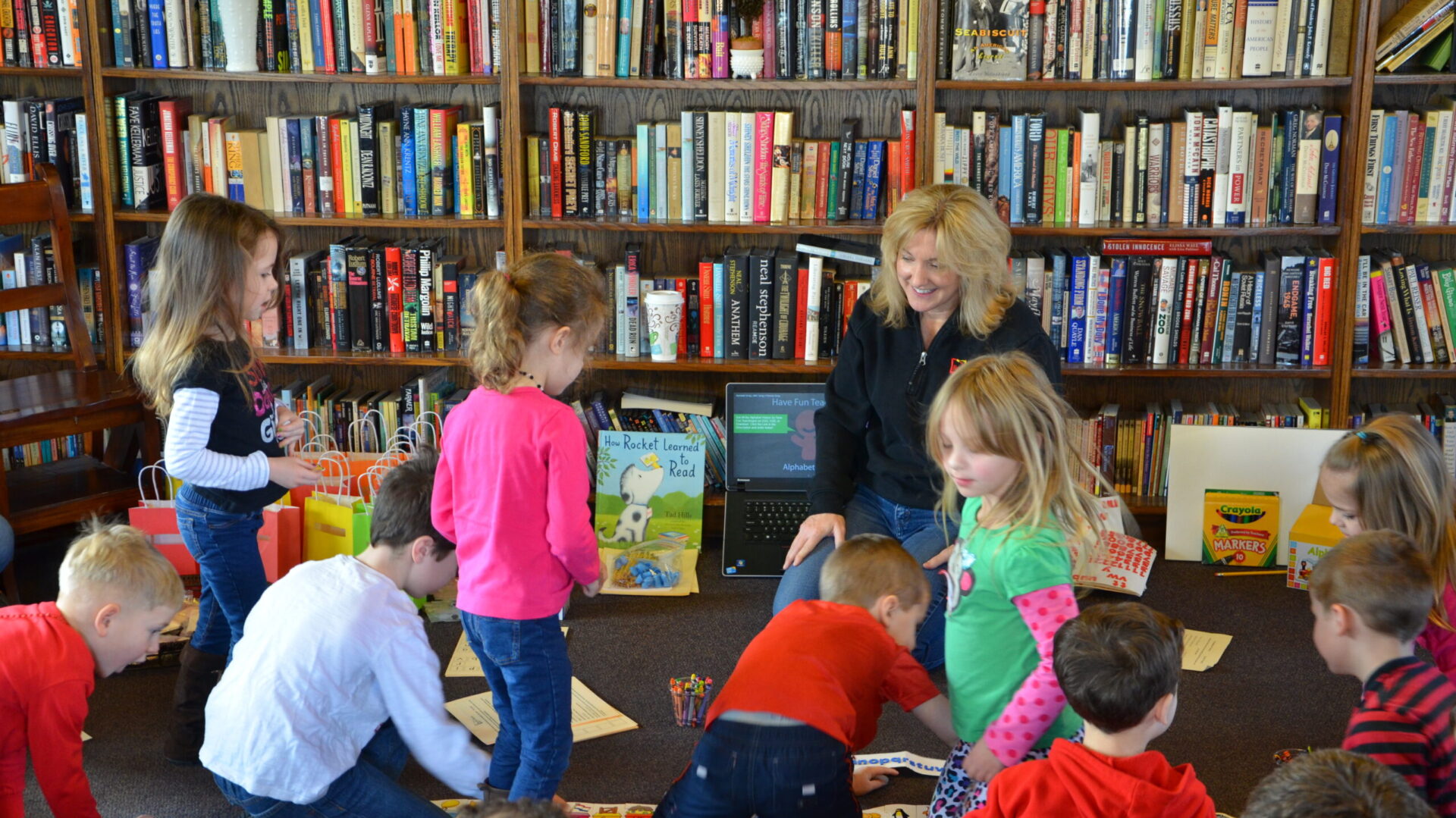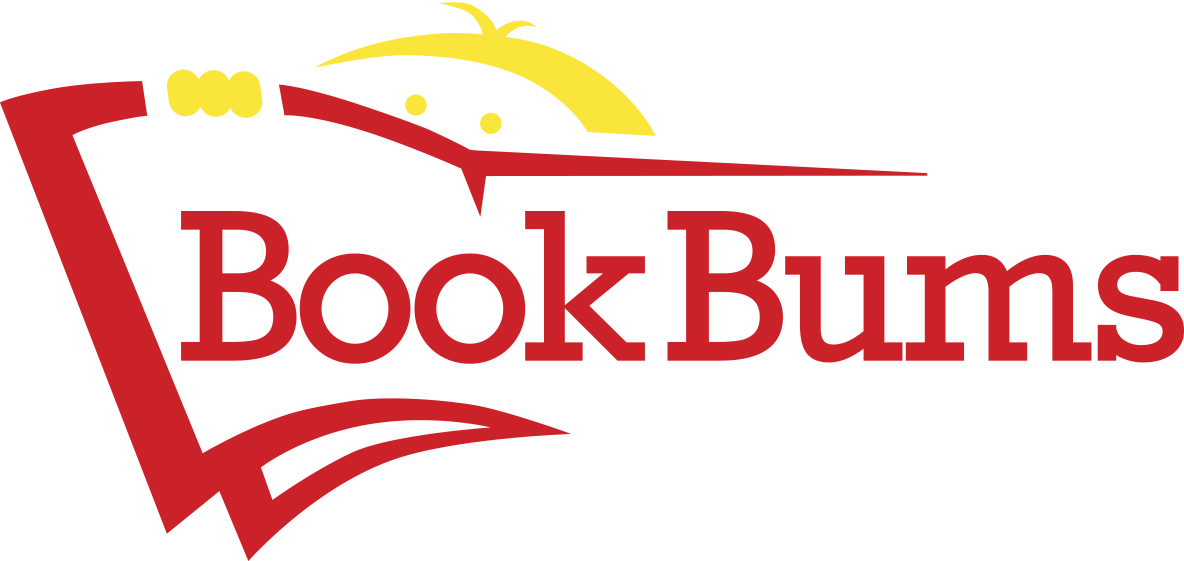
Hello Book Bums families!
Do we have any podcast listeners in our community? Bookish podcasts can be a great way to learn about new books, and there are a lot of them out there. A favorite that both adults and older kids can enjoy is Strong Sense of Place. Each episode focuses on a location and shares fun facts about the place and five fabulous books that are set there. Podcasts can be fun listening in the car or while taking care of chores like dishes or laundry.
We love to hear from you! Remember you can reply to this email with questions and comments.
Bookbums.com is an Amazon Associate; We earn from qualifying purchases. This means that if you click on a link to Amazon.com and make a purchase, We may earn a small commission at no extra cost to you. We do recommend the products. Feel free to find them by other means.
Word of the Week
utilitarian (you-til-ih-tayr-ee-n) adjective/describing word - designed to be useful or practical
Ann made a utilitarian choice when selecting her car, focusing on safety and gas mileage rather than style and color.
Literary Calendar
• August 18 is the birthday of fictional hero, Percy Jackson.
• Readers first met Percy in The Lightning Thief by Rick Riordan, but there are now many literary installments to enjoy.
• These are great books to introduce kids to Greek myths and deities.
• Visit Rick Riordan's website to explore and enjoy more Percy Jackson material.
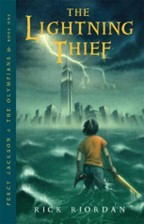
From our Bookshelves
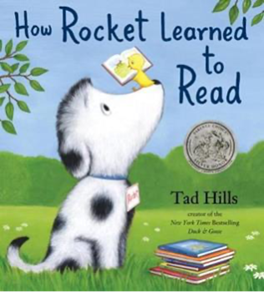
How Rocket Learned to Read by Tad Hills is a wonderful book to begin the new school year! It’s a story about a dog, Rocket, who doesn’t know how to read . . . yet. A little yellow bird introduces the “wonderous, mighty, gorgeous alphabet” to Rocket, and she patiently teaches him the sounds the letters represent. Together they slide those sounds together to make words. With lots of practice, Rocket learns to read. Best, he learns to love all things books.
Tips for Readers and Writers
We have some tips for reading How Rocket Learned to Read that will really help your beginning readers to embrace the code (phonics) upon which our language is based. First, in the book, you’ll find an illustration of an alphabet banner. I’d love for you to make an alphabet banner with your kids. Yours might look something like this:
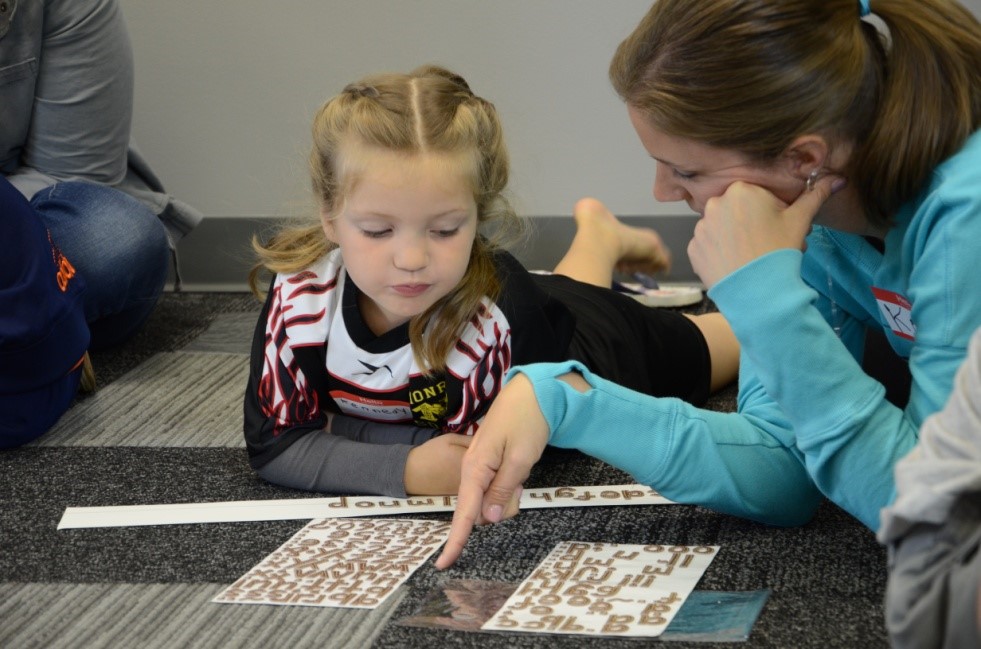
’d highly recommend finding stickers with lowercase letters and focus on those from the start. There is some debate about whether to use uppercase letters (more easily distinguishable) or lowercase letters (more frequently seen in text) with young letter learners. With no reservation, I absolutely recommend using lowercase letters for teaching letter names and sounds—and the emphasis should land more fully on the sounds than names. Of course, you can sing the ABC song and invite your kids to point to the letters as they sing the song, but the great bulk of your attention will be nailing down the sounds each letter represents.
Early in the book, it says that Rocket was disturbed and then, later, it says that he was captivated. These are perfect words to notice when reading together. We want our kids to have an ever-expanding vocabulary, and books are perfect for enhancing word knowledge. After a quick discussion about how Rocket was feeling in each situation, define the word and then strive to insert these two words into your conversations throughout the week.
Later in the book, Rocket is spelling words like W-I-N-D, however, when you’re reading these words, rather than naming the letters, make the sounds. In this way, you’ll be promoting your kids’ awareness of the sounds within words—a foundational pillar for reading success. When you make the sounds, have your kids name the word that those sounds, when zipped together, make.
If your kids are older, consider this book, How Rocket Learned to Read, for a baby shower gift, a teacher gift, or even a back-to-school gift for little ones you know and love.
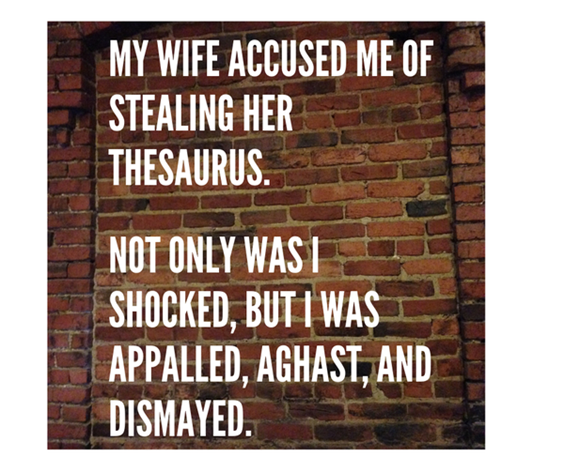
Tips for Families
Tips for Families
If you don’t already have one, consider purchasing a thesaurus for your family. Oh, I know. You can access an online thesaurus for finding synonyms (words with related meanings) and that’s perfect for when you’re searching for a particular word. A hand-held thesaurus, however, is better for lingering and delving into less utilitarian word explorations.
Admittedly, the bulk of my thesaurus use is to avoid repetition in writing. There are, however, additional recommended uses that you might find enjoyable and beneficial. You can discover new words, explore similarities and differences between words, do more of the semantic gradient work we’ve discussed in a previous newsletter, and you can infer meanings of new words according to their listed synonyms. For kids, we need to begin with sharing that synonyms are words that have nearly the same meanings.
When teaching kids, I remind them . . .
“When I say synonym, you say same.” (HINT: They both begin with s.)
“Synonym.”
“Same!”
“Synonym.”
“Same!”
“When I say antonym, you say opposite.” (HINT: They both begin with vowels.)
“Antonym.”
“Opposite!”
“Antonym.”
“Opposite!”
Then, do it again, but have the kids say the more sophisticated words.
“When I say same, you say synonym.”
“Same.”
“Synonym!”
Of course, you’ll want the kids to think of synonyms and antonyms for some words.
What’s a synonym for happy?
What’s an antonym for dirty?
Remember, with a thesaurus, you’ll never be at a loss for words!
Wordology Workshop
• Many of the Greek and Latin word roots we've been sharing continue to appear in newsletter articles each week. That's true this week as well. Can you find the following words and remember what the roots mean?
• phonics (phon)
• synonym and antonym (nym)
• vocabulary (voc)
• literary (lit)
Practical Grammar
Who’s and Whose
Who’s is a contraction for who + is or who + has, so if who is or who has can be substituted, we know the word spelling should be who’s.
Who’s going to purchase a thesaurus?
I have a son who’s begun a new business.
Whose shows possession.
Whose dictionary is this?
The tricky part is that, often, apostrophes are used to show possession:
The cat’s food is on the counter; but not with who’s.
If you know someone who would benefit from our newsletter or tutoring at Book Bums, please share this email with them! Thank you.
Copyright © 2024 Book Bums, All rights reserved
Our mailing address is:
7967 Cincinnati-Dayton Road Suite L
West Chester, OH 45069
